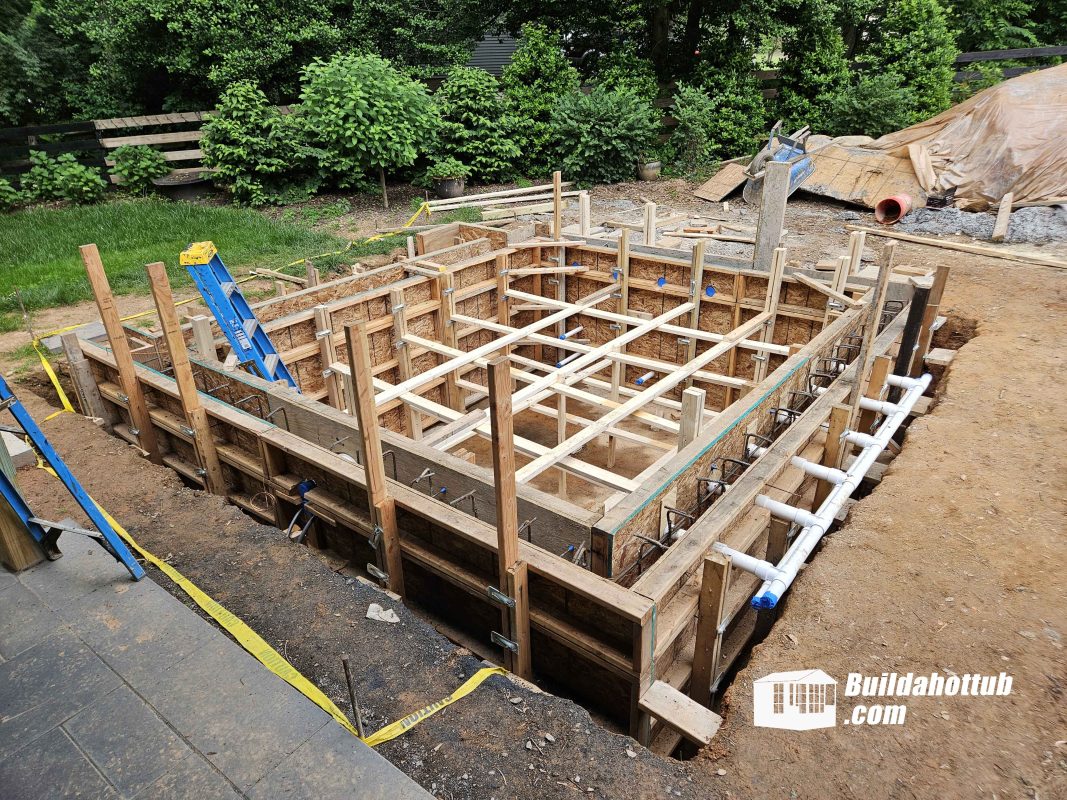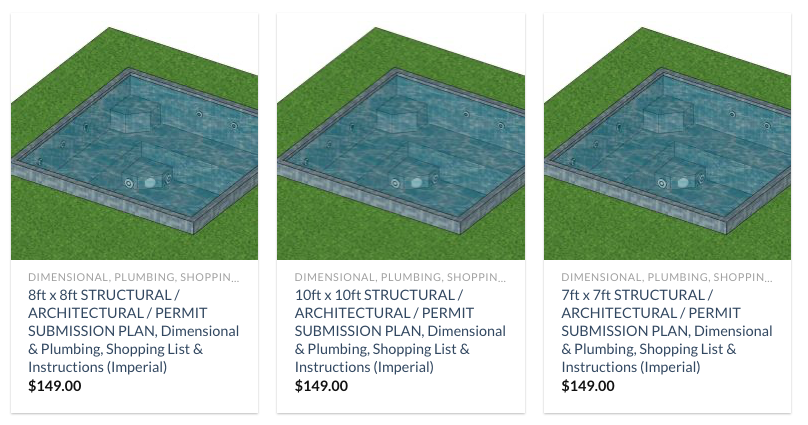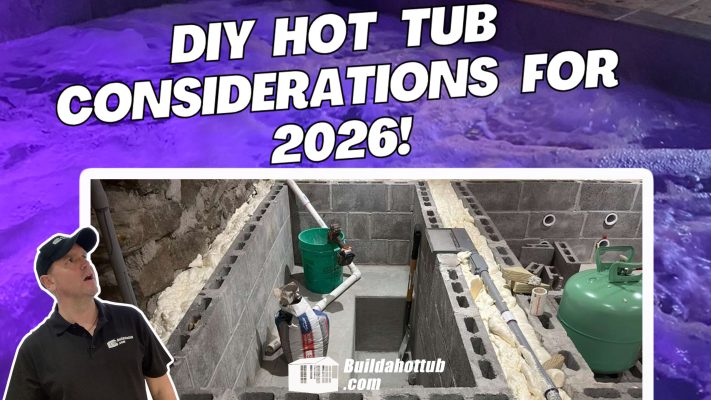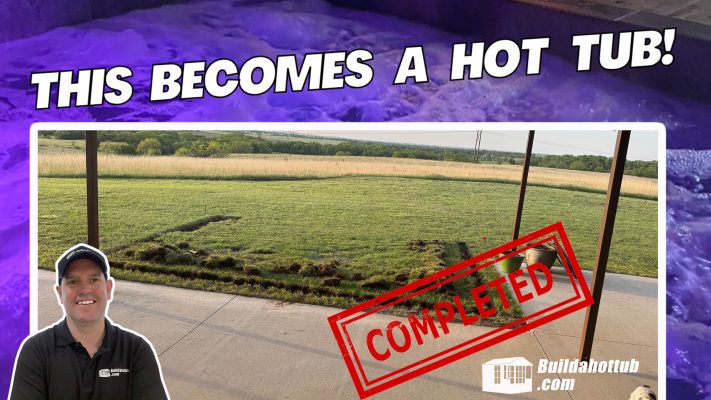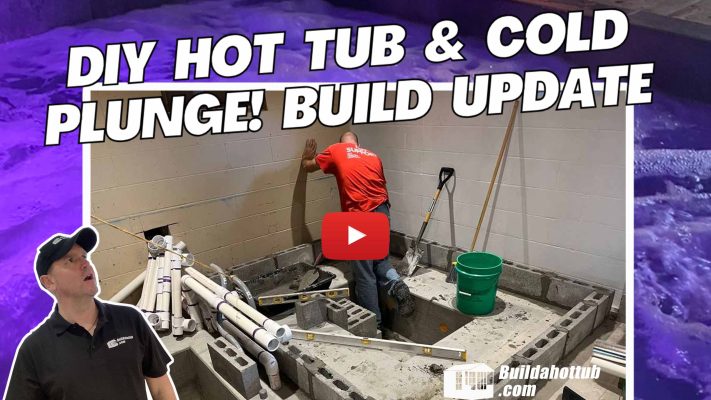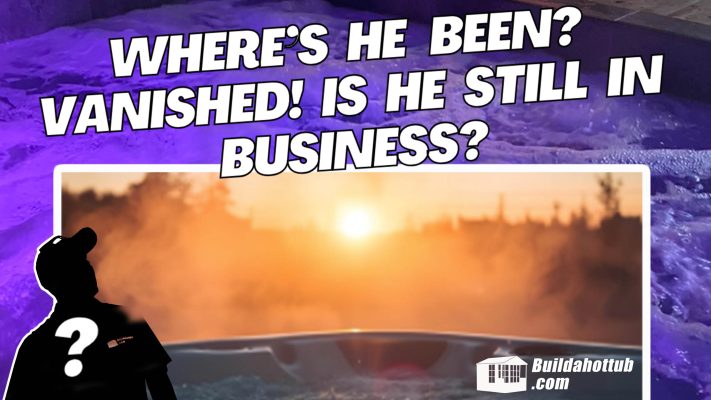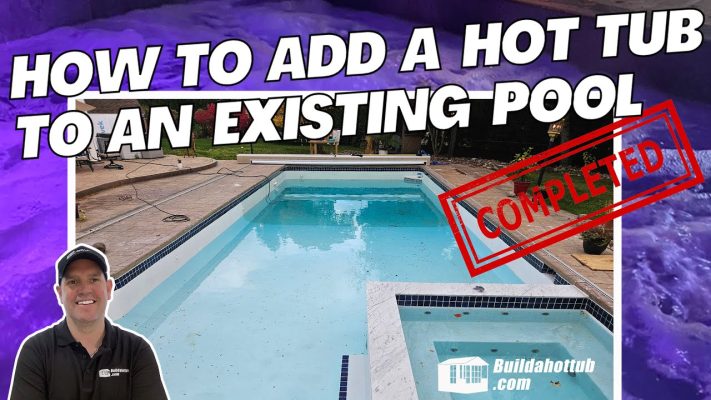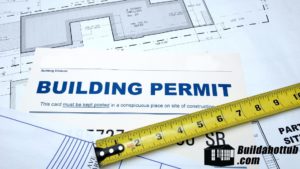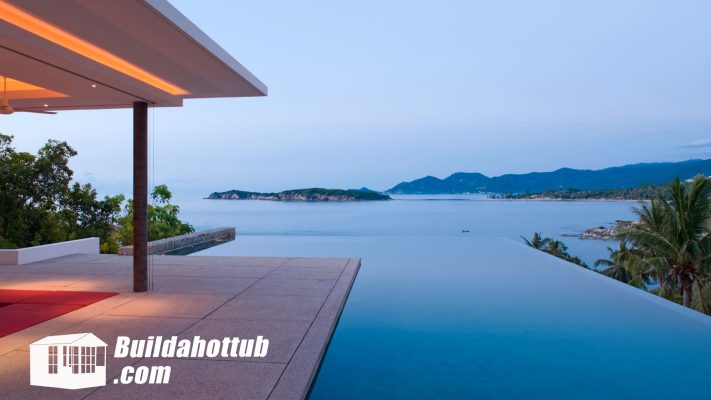It’s that time of year again where the second wave of DIY Hot Tubs and plunge pools begin – with the goal of being completed before the weather turns in the Fall / Autumn. I’ve had the pleasure of helping over 1,200 customers now achieve their hot tub dreams by guiding them through the DIY hot tub journey.
The allure of DIY hot tubs is undeniable. You save money compared to a pro spa builder doing it for you, and get the satisfaction of creating your own backyard oasis. What separates a successful build from a DIY Disaster is a good plan!
You can also find me on my socials;
The Blueprint to Bliss: Key Qualities of Great Plans
First things first: DIY hot tub construction requires some know-how. Even the best plans won’t build themselves! Be honest about your skill level. Great plans cater to a range of abilities, from beginner-friendly options to those geared towards experienced builders.
Next, consider the materials. Popular choices include poured concrete, concrete blocks, and Insulated Concrete Forms (ICF blocks). The best plans will explain the pros and cons of each, helping you select the one that aligns with your skillset. If the thought of laying block gives you a headache, perhaps a poured concrete plan is a better fit.
Having a clear roadmap is crucial. Forget winging it! Great plans offer detailed, step-by-step instructions that are easy to understand. Think of them as your personal construction coach. Bonus points for plans that include troubleshooting tips – because let’s face it, even the most meticulous builder encounters hiccups.
Speaking of meticulousness, a comprehensive material list with estimated costs is a must-have. Great plans ensure you have everything you need before you dive in (literally!). And because budgets and preferences vary, consider plans that offer some room for modification, allowing you to customize your hot tub experience.
Beyond the Basics: Choosing the Perfect Plan
Now that we’ve covered the essentials, let’s explore some additional considerations.
Heating options are a big decision. Electric, gas/propane, and air source heaters each have their own advantages and disadvantages. Which of these is the best fit for your needs?
Speaking of location, don’t underestimate the importance of the control room placement. Try and ensure it’s positioned below the water line and as close to the tub as possible. This seemingly small detail is crucial for maintaining proper jet pressure.
Finally, think about customization. You should tailor your hot tub to your vision, whether it’s size, seating arrangement, or jet placement. Imagine soaking under the stars in a spacious tub designed just for you!
Ready to Make a Splash?
Can I Help You?
If I can help you in any way I would love to hear from you. You can get in touch using the form below.
Thanks - Andi
 Hi, Andi here. I own Buildahottub.com and also write all of the articles and info pages on the site. Some years back now, I built my own hot tub but struggled to find the information I needed. So, once my tub was complete, I started this website to help others in their own pursuit of hot tub and plunge pools DIY building information.
Hi, Andi here. I own Buildahottub.com and also write all of the articles and info pages on the site. Some years back now, I built my own hot tub but struggled to find the information I needed. So, once my tub was complete, I started this website to help others in their own pursuit of hot tub and plunge pools DIY building information.
Fast forward to 2025, I've helped over 1400+ DIY customers just like you all over the world build hot tubs and pools. Have a good look around the site, there are lots of resources here. Please do get in touch if I can help you. - Cheers, Andi

